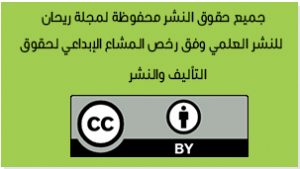بيع السفتجة في ضوء الفقه الإسلامي
This article explains the sale of Saftji and its rulings according to Islam. Human beings need someone in their lives to help them and solve their issues because human life is not free from dealing with others. Since the life of a human is civil and social, therefore he needs to maintain relations with others to fulfill social needs. Islamic law also considers the interests of humans and permits all those things that bring them benefit and free them from hardships and troubles, This research was conducted descriptively using the bibliographic approach, The research problem arises from the fact that the bill of exchange is a new form of transaction that most Muslims are ignorant of its legal ruling, and they face problems from a legal standpoint in many aspects, Saftajah means a book or a stamped sheet that a person writes to his representative or creditor in another country and obligates the person to provide him goods/wealth who has given him the loan. And it is similar to a loan or transfer. And this has a special importance according to Sharia, to understand whether saftajah is halal or haram, the jurists have different opinions regarding its permissibility and prohibition. And in terms of protecting money and profits, is there protection for both sides of the sale of goods and profits, or is there a loss and loss of money for both parties? Purpose of the study Identifying the sale of Saftja and understanding its types and rulings and refraining from it if there is a Shariah prohibition in it and performing it if there is no prohibition in it and understanding its permissibility and impermissibility, Importance of the study Since people face this kind of sale in their commercial and non-commercial dealings, borrow from some and lend to others, therefore, they become the borrowers and lenders at the same time. If the law forbids not paying the dues without paying the original debt, then there would be a problem for people. Therefore, in order not to face hardships and make it easy for the lender and the borrower, Islamic Sharia has made it permissible to assign his borrower to his lender and it will help others as well, At the end of the articles, we have recommended the application of the rules of Islamic Sharia in various areas of life and the need for research for contemporary financial transactions in the light of Islam. Special recommendations have been provided regarding the daily transactions of people such as saftajah sale because many people deal with it.
Keywords: Sale, Saftajah, Cases, Ruling.
Masihullah HOZIFI, Lecturer, Department of Jurisprudence and Law, Sheikh Zayed University, Khost – AFGHANISTAN
Ismail SHAZAD, Professor Lecturer, Department of Islamic Culture, Sheikh Zayed University, Khost – AFGHANISTAN
Fakhruddin IZAM, Professor Lecturer, Department of Islamic Culture, Sheikh Zayed University, Khost – AFGHANISTAN
 مجلة ريحان للنشر العلمي مجلة علمية، محكمة، شهرية، مفتوحة الوصول
مجلة ريحان للنشر العلمي مجلة علمية، محكمة، شهرية، مفتوحة الوصول
